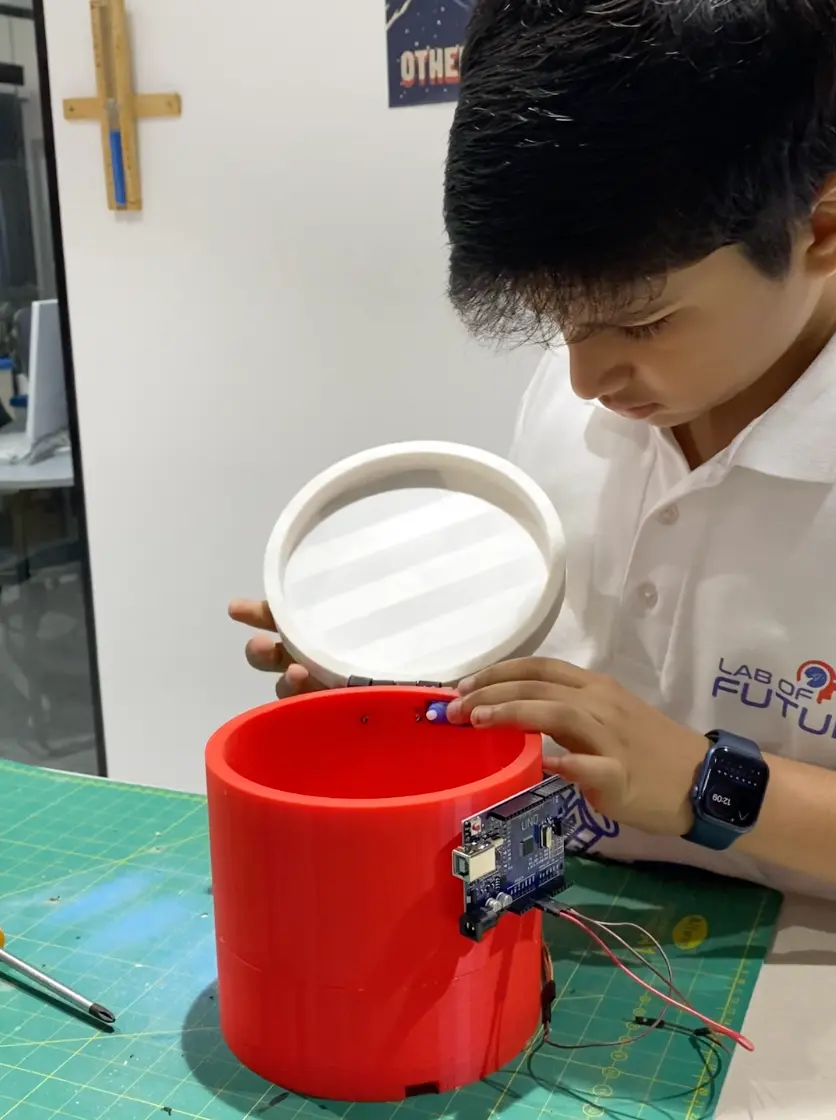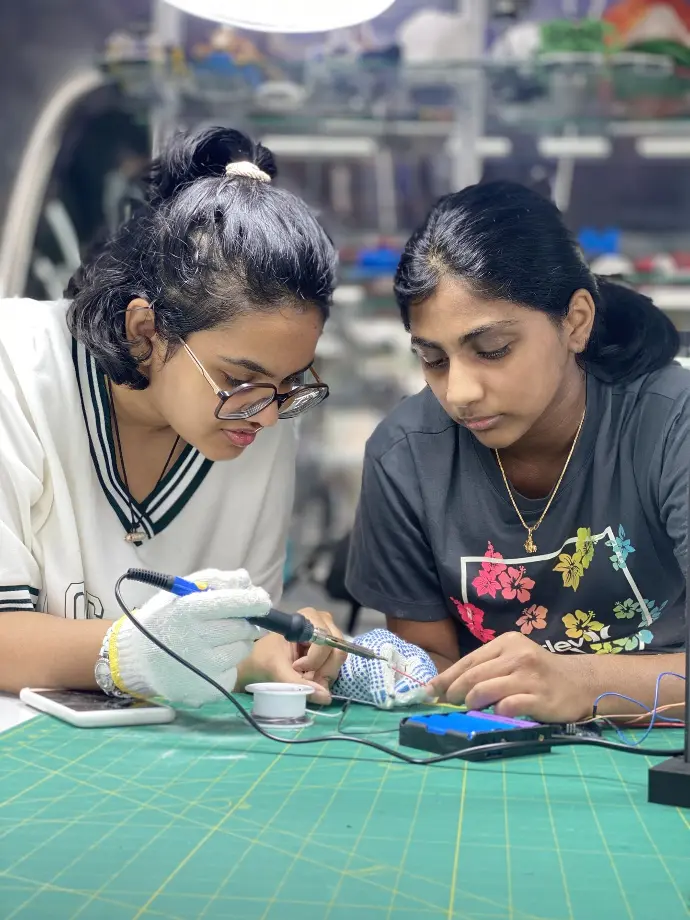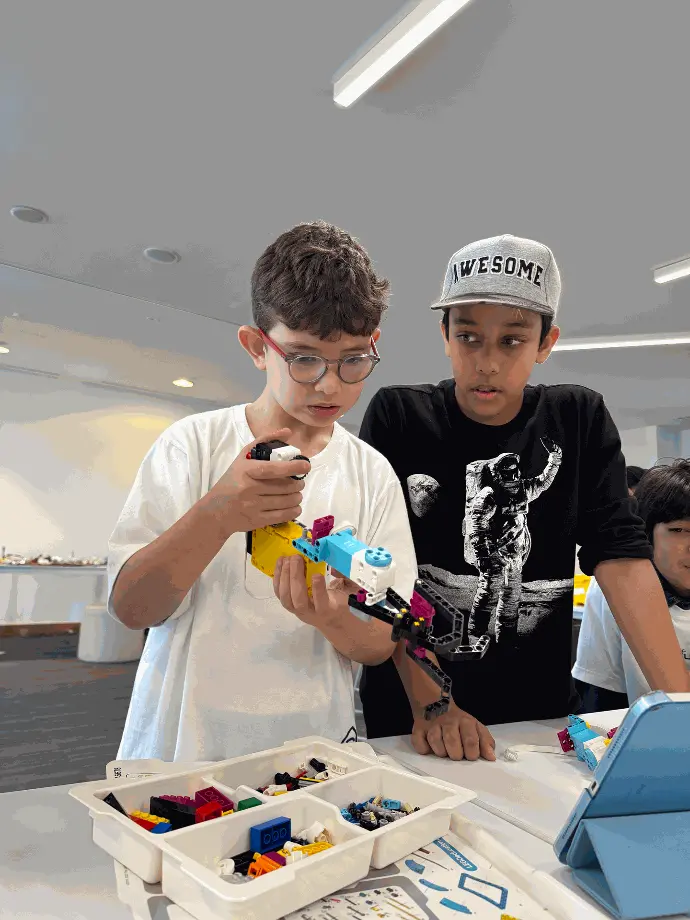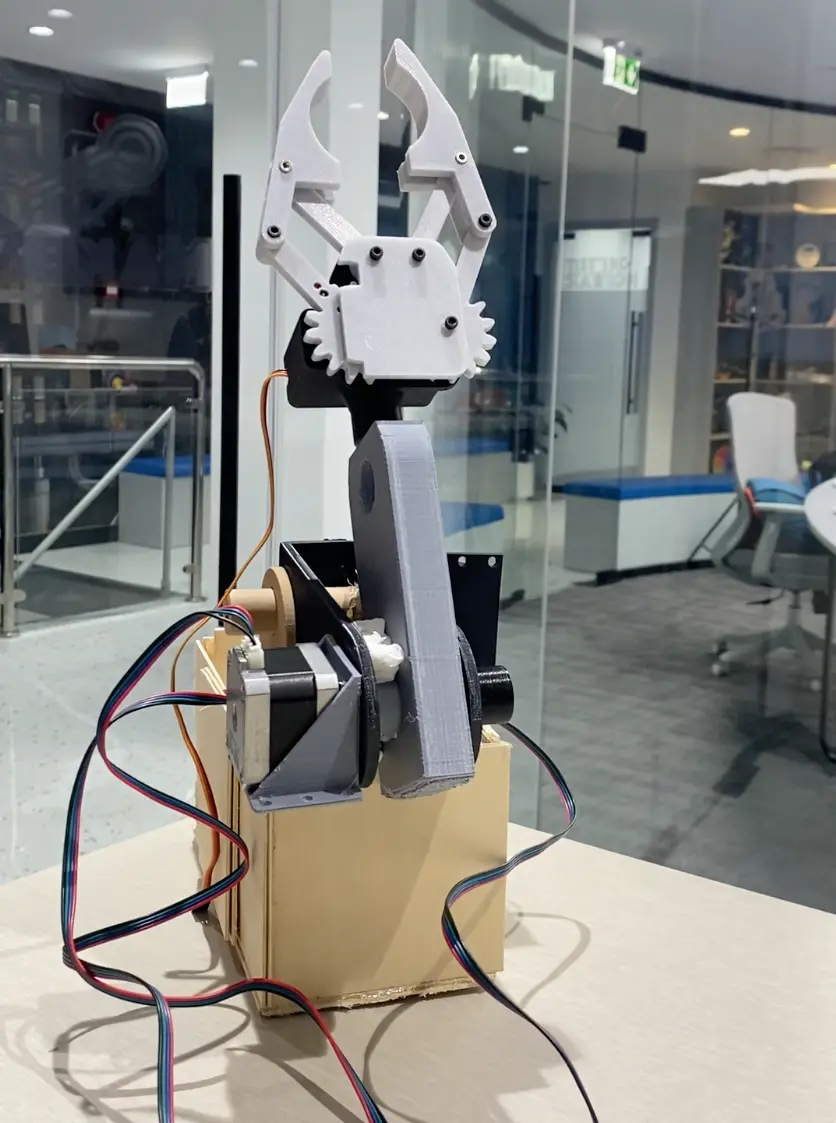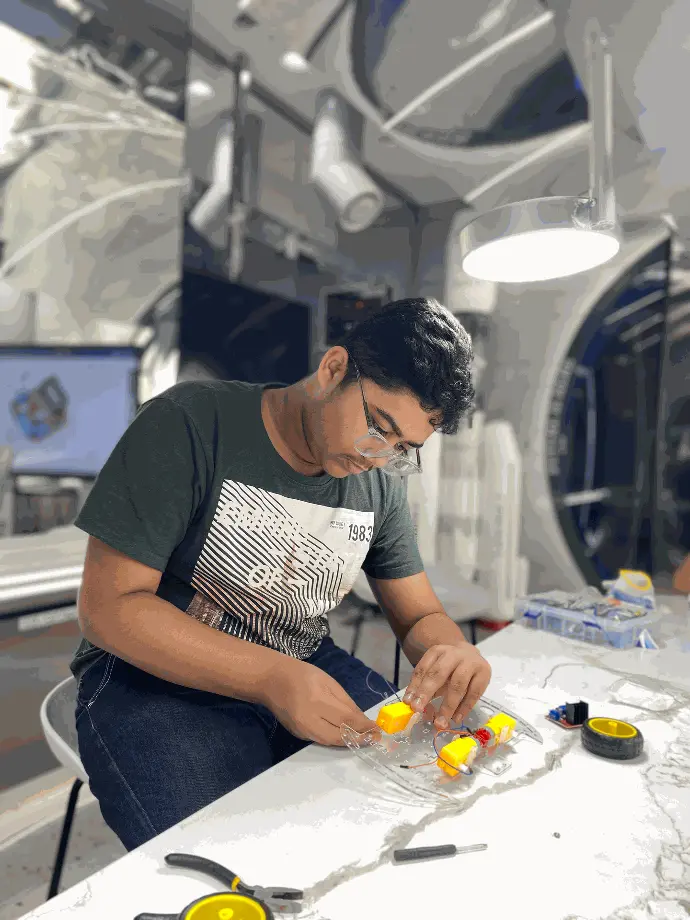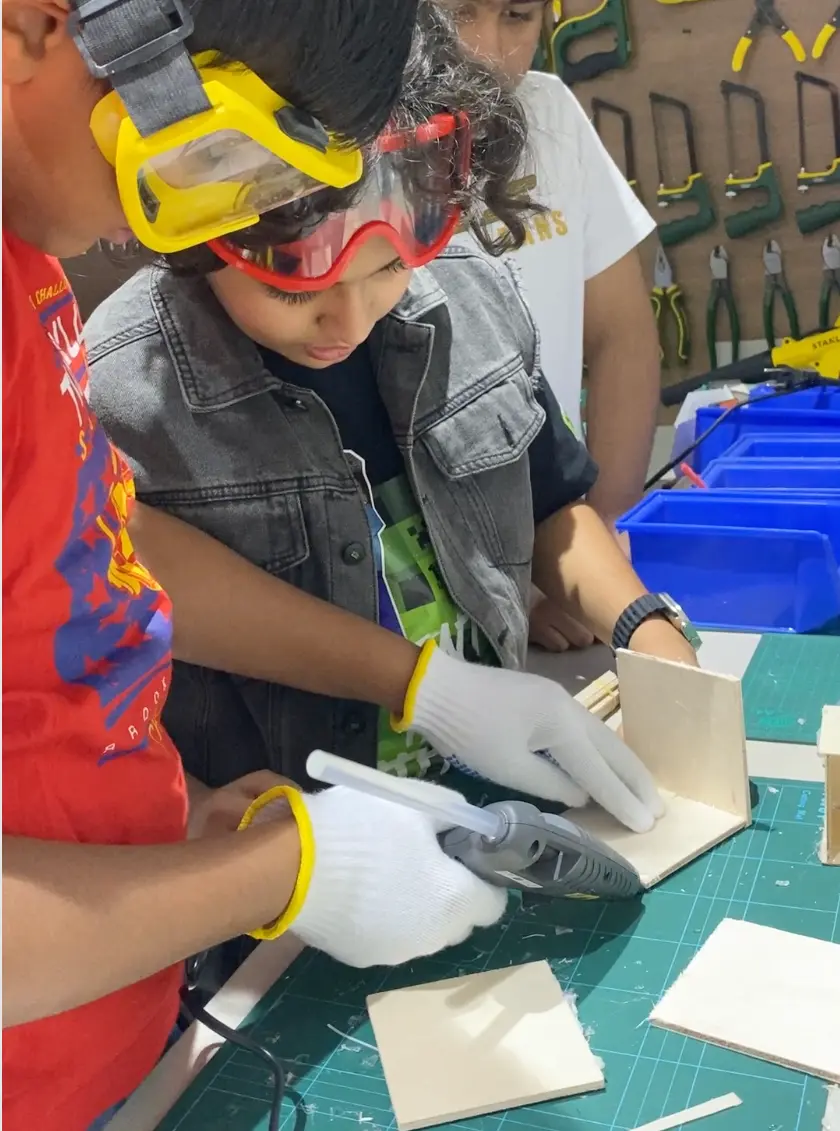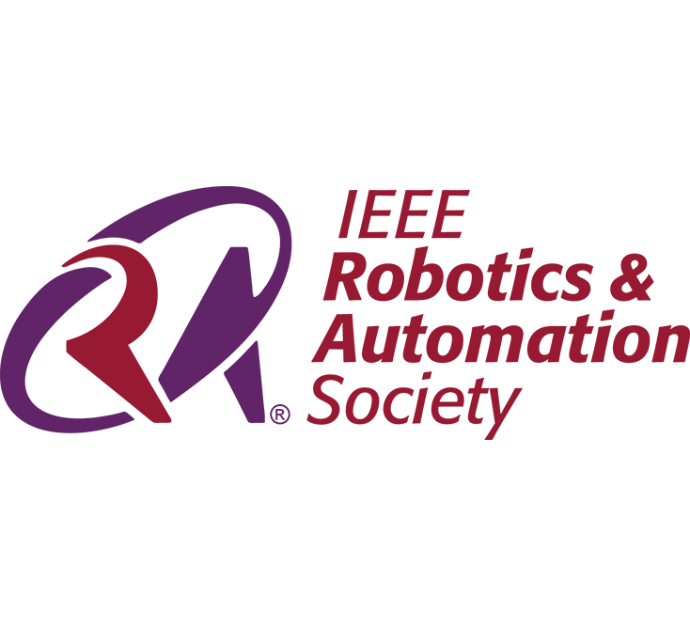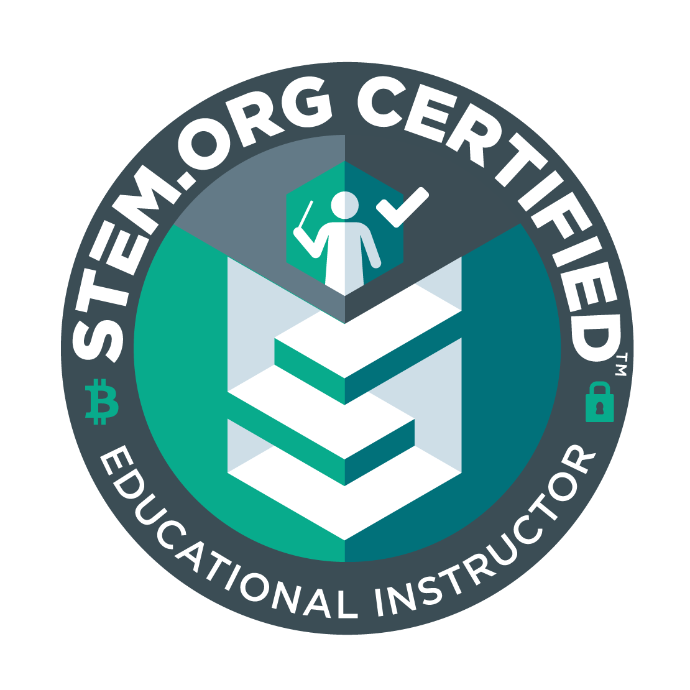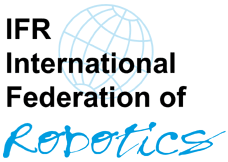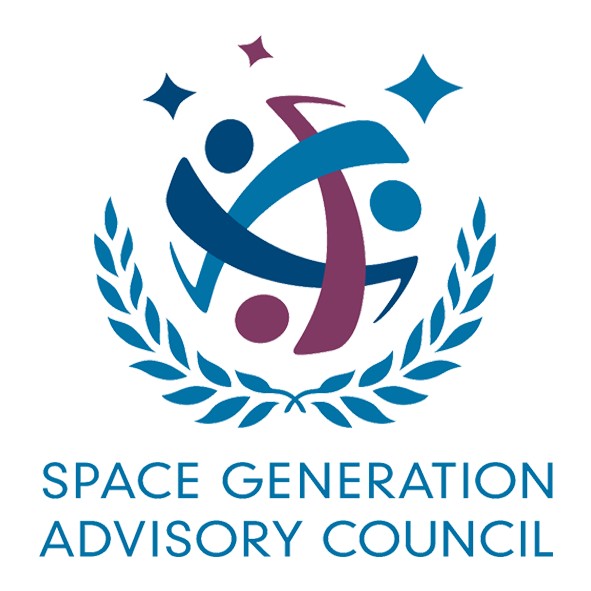Applications
| Category | Applications |
| Machine Learning | Robotics automation, intelligent decision-making |
| Autonomous Robotics | Maze-solving robots, autonomous navigation |
| Computer Vision | Object detection, tracking, and recognition |
| Inverse Kinematics | Precise robotic arm control, complex movement simulation |
| Advanced Robotic Arms | Construction and control of multi-functional robotic arms |
| Gesture Control | Interaction with robots using hand gestures |
| Sensor Integration | Implementing advanced sensors in robotics |
| CubeSAT Development | Design and testing of small satellites for space missions |
| Data Analysis | Analyzing data from space missions and experiments |
| Satellite Sub-systems | Building heating systems, energy backup systems |
| Drone Design | Creating and programming functional drones |
| ISS Robotics | Designing robots for use in the International Space Station |
| Remote Sensing | Conducting remote sensing missions and data collection |
| Robotics Engineering | Building and assembling robots, including basic and complex systems |
| Programming | Coding for robotic control, basic automation tasks |
| Kinematics Understanding | Exploring principles of robot movement and mechanics |
| AI and Sensor Integration | Implementing image recognition and sensor systems |
| Wireless Communication | Developing wireless control for robots |
| Problem-Solving | Engaging in practical problem-solving with robotics and space projects |
| Virtual Reality (VR) | VR simulations of space missions and equipment |
| Space Systems Design | Building and analyzing space-related systems like space stations and rovers |
Career Opportunities
| Career Path | Description | Career Pathway | Universities Offering Undergraduate Programs |
| Robotics Engineer | Designs, builds, and tests robotic systems for various applications. | Engineering, Robotics, Mechatronics | Massachusetts Institute of Technology (MIT), Stanford University, Carnegie Mellon University |
| Machine Learning Engineer | Develops algorithms and models to enable machines to learn and make decisions. | Computer Science, Artificial Intelligence | University of California, Berkeley, Georgia Institute of Technology, University of Illinois Urbana-Champaign |
| Aerospace Engineer | Designs and develops aircraft, spacecraft, and related systems. | Aerospace Engineering, Space Systems Engineering | California Institute of Technology (Caltech), Purdue University, University of Michigan |
| Data Scientist | Analyzes and interprets complex data to aid in decision-making. | Data Science, Statistics, Computer Science | Harvard University, University of Washington, University of California, San Diego |
| Computer Vision Engineer | Specializes in enabling machines to interpret and understand visual information. | Computer Science, Electrical Engineering | University of California, Los Angeles (UCLA), University of Toronto, University of Oxford |
| Satellite Systems Engineer | Designs and manages satellite systems and their components. | Aerospace Engineering, Electrical Engineering | University of Colorado Boulder, University of Surrey, Texas A&M University |
| Drone Engineer | Designs and develops unmanned aerial vehicles (drones) for various uses. | Aerospace Engineering, Robotics, Electronics | Embry-Riddle Aeronautical University, University of Michigan, University of Bristol |
| Remote Sensing Specialist | Uses satellite or airborne sensor technologies to gather data about the Earth. | Earth Science, Remote Sensing, Environmental Science | University of Edinburgh, University of Maryland, Stanford University |
| Space Systems Engineer | Works on the design, development, and integration of space systems and missions. | Aerospace Engineering, Space Systems Engineering | University of Texas at Austin, University of Southampton, Georgia Institute of Technolog |









